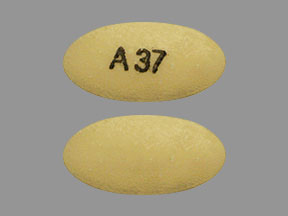
Pantoprazole Coupons & Savings Card – Discount Prices from $4.16
Generic for: Protonix, First-pantoprazole
My prescription
Edit
40MG, Pantoprazole (30 Tablet Delayed Releases)
Select pharmacy

CVS
$19.17
COUPON PRICE
Walmart
$4.16
COUPON PRICE
Walgreens
$10.08
COUPON PRICE
Albertsons
$11.68
COUPON PRICEPantoprazole savings card
Show this card to your pharmacist
Walmart
$4.16
BIN
ID
PCN
GRP
019876
LH89CB9559
CHIPPO
LHX
Powered by
More prescriptions for heartburn
More prescriptions for heartburn
Price history for Protonix (brand) & Pantoprazole (generic)
30 Tablet Delayed Releases, 40MG
Average retail price for Protonix
Average retail price for Pantoprazole
Average SaveHealth price for Pantoprazole
Our price history data is based on aggregated prescription data collected from participating pharmacies in America. Our prescription data updates daily to reflect the latest price changes. If you notice a missing data point, it means there wasn't sufficient data available to generate a monetary value for that date.
We analyzed Pantoprazole prices for (40MG, 30 Tablet Delayed Releases) over the last 12 months. The average retail price was $29.74, while the average price using the SaveHealth discount card was $11.36. That's a savings of approximately 61.80% when using our Pantoprazole coupon.
Compared to the generic version, Protonix had an average price of $18.62 over the same time period. With the SaveHealth savings card, Pantoprazole is 38.99% cheaper on average than Protonix.
*Retail prices are based on pharmacy claims data, and may not be accurate when we don't have enough claims.
Pantoprazole dosage forms
Dosage Quantity Price from Per unit 20MG 14 Tablet Delayed Releases $3.17 $0.23 20MG 20 Tablet Delayed Releases $3.46 $0.17 20MG 30 Tablet Delayed Releases $3.94 $0.13 20MG 60 Tablet Delayed Releases $5.39 $0.09 20MG 90 Tablet Delayed Releases $13.33 $0.15 20MG 180 Tablet Delayed Releases $23.27 $0.13 40MG 30 Tablet Delayed Releases $4.16 $0.14 40MG 14 Tablet Delayed Releases $3.27 $0.23 40MG 20 Tablet Delayed Releases $3.61 $0.18 40MG 60 Tablet Delayed Releases $5.82 $0.10
| Dosage | Quantity | Price from | Per unit |
|---|---|---|---|
| 20MG | 14 Tablet Delayed Releases | $3.17 | $0.23 |
| 20MG | 20 Tablet Delayed Releases | $3.46 | $0.17 |
| 20MG | 30 Tablet Delayed Releases | $3.94 | $0.13 |
| 20MG | 60 Tablet Delayed Releases | $5.39 | $0.09 |
| 20MG | 90 Tablet Delayed Releases | $13.33 | $0.15 |
| 20MG | 180 Tablet Delayed Releases | $23.27 | $0.13 |
| 40MG | 30 Tablet Delayed Releases | $4.16 | $0.14 |
| 40MG | 14 Tablet Delayed Releases | $3.27 | $0.23 |
| 40MG | 20 Tablet Delayed Releases | $3.61 | $0.18 |
| 40MG | 60 Tablet Delayed Releases | $5.82 | $0.10 |
| 40MG | 90 Tablet Delayed Releases | $13.97 | $0.15 |
| 40MG | 180 Tablet Delayed Releases | $21.49 | $0.12 |
